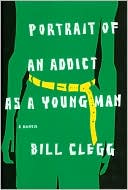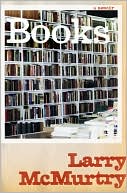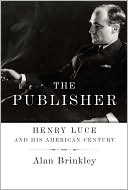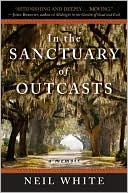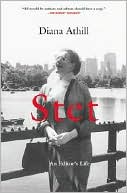No Ordinary Joe: A Life of Joseph Pulitzer III
\ The widely known Pulitzer name is considered by many to be synonymous with the Pulitzer Prizes and the St. Louis Post-Dispatch. Joseph Pulitzer III (1913–1993) was editor and publisher of the Post-Dispatch, as were his father and grandfather before him. In No Ordinary Joe, Daniel W. Pfaff provides an insightful look at the life and career of Joseph Pulitzer III, using correspondence and records that were made available exclusively to the author. Pfaff also includes interviews with...
Search in google:
The widely known Pulitzer name is considered by many to be synonymous with the Pulitzer Prizes and the St. Louis Post-Dispatch. Joseph Pulitzer III (1913-1993) was editor and publisher of the Post-Dispatch, as were his father and grandfather before him. In No Ordinary Joe, Daniel W. Pfaff provides an insightful look at the life and career of Joseph Pulitzer III, using correspondence and records that were made available exclusively to the author. Pfaff also includes interviews with more than seventy individuals who knew and/or worked with Pulitzer. Kirkus Reviews Pfaff (Joseph Pulitzer II and the Post-Dispatch, 1991) paints a beauty-marks-and-all portrait of the least consequential Pulitzer. Even as he began his 31-year reign as editor/publisher of the staunchly liberal St. Louis Post-Dispatch, Joseph Pulitzer III confronted a media landscape vastly different from the one dominated by his father and even more famous grandfather. Through his financial strategies, diversification into television and cautious stewardship, he managed to keep his family's empire intact. Otherwise, it's difficult to see how anything other than his last name, connoting as it does the very best (the Prize) and the very worst (the yellow) in journalism, recommends him for inclusion in the discussion of great newspapermen. Born to privilege, educated at all the right schools (St. Marks, Harvard), at home in the usual playgrounds of the wealthy (Paris, Zermatt, Bar Harbor), Pulitzer appears to have resignedly entered the family business. Left to his own inclinations, it's likely his knowledge of and passion for art-even as a youth he had a discerning eye, and his wealth enabled him to become an early collector of Picasso, Klee, Mondrian and other modern masters-might have led to a more genuinely accomplished, if more modest, career. Pfaff (Emeritus, Journalism/Penn State Univ.) attempts to persuade us that Pulitzer was other than the ordinarily competent, self-absorbed, aloof, humorless fellow who emerges here, but the author relies principally on interview subjects who owe their lives, fortune, career or portions of their soul to Joe III. Almost completely devoid of the common touch, a not unimportant quality in a newspaperman, he reached his 60s before experiencing thenovelty of a bus ride. Charming. The mini-portraits of the paper's four managing and four editorial-page editors constitute the book's strongest section. Only followers of the fortunes of 20th-century media companies or the most devoted students of journalism will warm to Joe himself.
Sources and AcknowledgmentsixAbbreviationsxiiiIntroduction11Growing Up72Harvard223Executive Apprentice364Wartime515Associate Editor606Succession897Michael Edgar Pulitzer1038The Pulitzers and the Newhouses1179J. P. IV: Starting Out13610The Family Fight14911J. P. IV: "There Are No Dynasties"19112Managing Editors20813The Page23114Running the Business25315Patron of the Arts27016Prizes and Principles28217With Family and Friends29518Giving Good Measure31219Epilogue323Selected Bibliography349Index351
\ “The story unravels almost like a mystery as the reader wonders how (or if) Pulitzer can save his newspaper as it faces fierce challenges from other newspapers, family members, and stockholders. Not only is the author breaking new ground by writing about someone who has largely been ignored by other historians, but by the end of the [book] the reader realizes why Joseph Pulitzer III was important in the history of American newspapers in the second half of the twentieth century.”—Patrick S. Washburn, author of A Question of Sedition: The Federal Government’s Investigation of the Black Press during World War II\ \ \ \ \ \ Kirkus ReviewsPfaff (Joseph Pulitzer II and the Post-Dispatch, 1991) paints a beauty-marks-and-all portrait of the least consequential Pulitzer. Even as he began his 31-year reign as editor/publisher of the staunchly liberal St. Louis Post-Dispatch, Joseph Pulitzer III confronted a media landscape vastly different from the one dominated by his father and even more famous grandfather. Through his financial strategies, diversification into television and cautious stewardship, he managed to keep his family's empire intact. Otherwise, it's difficult to see how anything other than his last name, connoting as it does the very best (the Prize) and the very worst (the yellow) in journalism, recommends him for inclusion in the discussion of great newspapermen. Born to privilege, educated at all the right schools (St. Marks, Harvard), at home in the usual playgrounds of the wealthy (Paris, Zermatt, Bar Harbor), Pulitzer appears to have resignedly entered the family business. Left to his own inclinations, it's likely his knowledge of and passion for art-even as a youth he had a discerning eye, and his wealth enabled him to become an early collector of Picasso, Klee, Mondrian and other modern masters-might have led to a more genuinely accomplished, if more modest, career. Pfaff (Emeritus, Journalism/Penn State Univ.) attempts to persuade us that Pulitzer was other than the ordinarily competent, self-absorbed, aloof, humorless fellow who emerges here, but the author relies principally on interview subjects who owe their lives, fortune, career or portions of their soul to Joe III. Almost completely devoid of the common touch, a not unimportant quality in a newspaperman, he reached his 60s before experiencing thenovelty of a bus ride. Charming. The mini-portraits of the paper's four managing and four editorial-page editors constitute the book's strongest section. Only followers of the fortunes of 20th-century media companies or the most devoted students of journalism will warm to Joe himself.\ \

